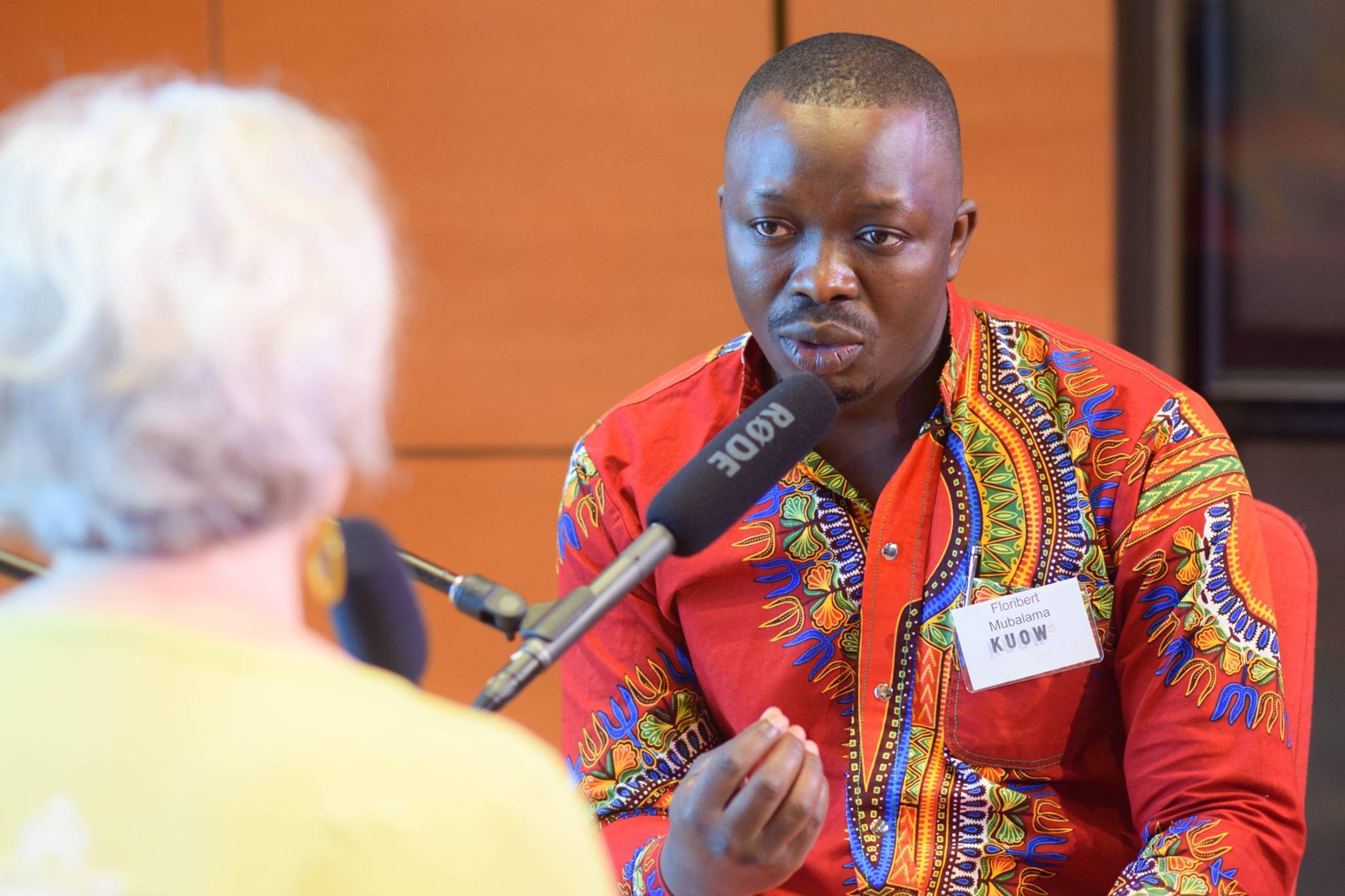We are excited to announce our Parent-Child Home Program awards. The Parent-Child Home Program (PCHP) supports parents of two and three year olds through educational play that helps caregivers develop their children’s cognitive and social-emotional skills. To learn more about the benefits of PCHP, you can read this earlier Best Starts blog post.
Floribert Mubalama, is the founder and CEO of the Congolese Integration Network. His organization is also the recent recipient of Parent-Child Home Program funding.

Floribert came to the United States with his family after spending more than 8 years in a refugee camp in Malawi. When he arrived in King County in December 2014, he was one of the first Congolese refugees to the area. Floribert organized the Congolese Integration Network in response to the isolation he observed among Congolese refugees as they navigated new systems and communities. As he described it, “Nobody knows that we are here…so we need to introduce ourselves.”
As a father to five children, Floribert personally understands the value of PCHP. When considering whether to apply for PCHP funding, he thought of himself as a parent first. He then voiced his concerns with other Congolese refugee parents and discovered that everyone shared similar concerns. They identified PCHP as something their community needed and “very important for families coming from camp and traumatic areas.”
Floribert named three challenges his community faces that he believes PCHP will help:
- Strengthen relationships between parents and children
- Preserve family culture
- Address trauma
Strengthen relationships
Floribert recalled his own experience,
When I got a job, I had no time for my own kids. We are working for them but have no time for them anymore. We are getting disconnected.
Floribert also noted that many children become more focused on screens rather than social interactions, especially in single parent families where the parent is focused on making rent and providing stability and unable to often monitor how their child’s time is spent. Floribert shared that building relationships and strengthening family is key and he is glad that PCHP can help them do just that, starting at a young age and building a good foundation.
Preserve family culture
Floribert also shared,
My kids started losing their language–Swahili. What steps should I now take to teach them back the language? If not me, who will do it? There is a gap between us–communication broken between us.
PCHP home visitors are culturally matched with families. Through modeling behaviors, the home visitors support parents in learning how to stimulate their child’s ongoing learning in their own home, which can include language. The emphasis on nurturing the parent-child relationship is critical to the social-emotional development of the child and the social support that parents receive through PCHP is valuable.
Address trauma
Floribert spoke at great length about trauma and his personal experience as a refugee. Even upon reaching his final destination, fear and humiliation continued to haunt him. Floribert described his struggle with the stigma of being a refugee and how his experience has changed him as a person. In his opinion, children are even more vulnerable when born into traumatic environments. As he explained,
For [refugee children], trauma is in their blood and in their genes.
While some children develop well despite trauma, others display obvious development delays. Floribert’s wife was pregnant with his eldest son while in the camp and was 7 months pregnant upon her arrival in America. Floribert described his son as developing differently from other children. At two years old, he was not talking and at 2 1/2 he was still struggling with speech, among other delays. Floribert now understands his son was experiencing the effects of trauma and knows there are many similar cases.
Here in King County, PCHP is known for its success in reaching communities of color and refugee and immigrant communities. For newly arrived Congolese refugee families experiencing isolation, PCHP can help establish a link to the outside world. The program is very relational, establishing trusting relationships between home visitors and parents. Thanks to these relationships and interactions, PCHP may provide the opportunity for referral to other support services with a trauma-informed lens. A referral to early intervention services for a child like Floribert’s son experiencing developmental delays, is but one example of potential additional support to address trauma-related challenges.

We are very excited to announce all our Parent-Child Home funding recipients, in partnership with United Way King County and the City of Seattle. With the $1.5 million recently awarded, the partners below will serve 346 additional King County families, the majority of whom live outside Seattle and are part of refugee and immigrant communities.
| Community Partner | Communities Served |
| *Chinese Information & Service Center | Chinese, Vietnamese, East Indian |
| +Congolese Integration Network | Congolese refugees |
| +Denise Louie Education Center | Latino, African American, African immigrant, Asian |
| *El Centro de la Raza | Latino |
| *Encompass | African American |
| +Horn of Africa Services | East African |
| +Intercultural Child & Family Services | African American, American Indian/Alaskan Native, child welfare involvement |
| +Iraqi Community Center of WA | Arabic-speaking refugees |
| +Southeast Youth & Family Services | African American, African immigrant, SE Asian |
| *Southwest Youth & Family Services | East African |
| +Voices of Tomorrow | Somali |
| +West African Community Council | West African |
| *YWCA | Homeless |
*notes expansion of existing PCHP programs +notes new PCHP programs
Community partners are already hiring for newly funded positions and beginning programming soon. These new and expanded PCHP programs will model parent-child verbal interaction through educational play, which will develop a child’s language, literacy, cognitive and social-emotional skills. Best Starts can’t wait to see the impact these PCHP programs will make!

Thank you for sharing! Amazing work!!!!!!
Thank You BSK!!!!
Thanks, Ashley! We are pretty thrilled ourselves!